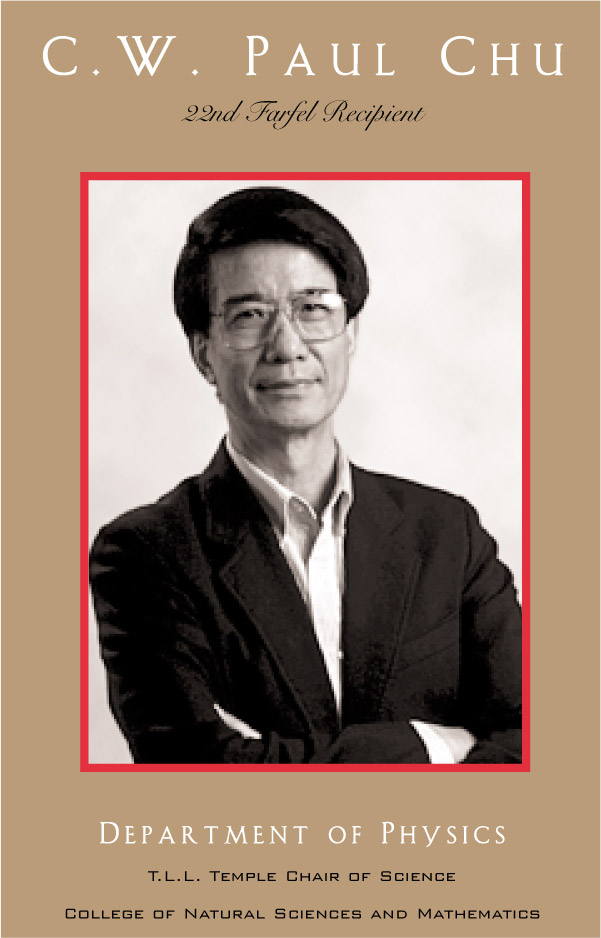
Named Best Researcher in the United States by US News and World Report in 1990, Professor C.W. "Paul" Chu has continued his award winning research as a professor of physics, director of the Texas Center for Superconductivity, and the T.L.L. Temple Chair of Science, since joining the faculty in 1979. In 1988, he received a National Medal of Science for leading a team of scientists in the discovery of high temperature superconductivity.
Beginning in the summer of 2001, Chu will serve as president of the Hong Kong University of Science and Technology. He will continue to serve the University of Houston as the Temple Chair and lead his research program at the Texas Center for Superconductivity.
"When I started my academic career thirty years ago, I was told that there were three missions of professors: teaching, research and service," he said. "I think as a professor my ultimate duty is to teach our students and also to serve our local and global communities. I strongly believe that without research, a university's knowledge will become stale, and teaching and service will become less effective."
In 2000, Chu visited Washington, D.C., to contribute a sample of his groundbreaking research in the field of high temperature superconductivity to the National Millennium Time Capsule Project. Chu's work has resulted in the publication of more than 460 papers in referred journals, as well as entries on lasers and superconductivity for Funk and Wagnall encyclopedias.
Born in Hunan, China, he received his B.S. degree from Cheng-Kung University in Taiwan. After service with the Nationalist Chinese Air Force, he earned a M.S. degree from Fordham University, Bronx, N.Y., and completed his Ph.D. at the University of California at San Diego -- all three degrees in physics.
Chu is the recipient of more than a dozen honorary professorships and doctorates and awards, and belongs to a host of national and international societies and organizations. He believes the unique dynamics between UH and the city of Houston has enabled him to successfully do the things he loves most -- teach and study superconductivity.
"Nowhere else in the world can you find such support," he said.